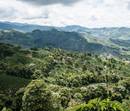Noticias

Reliable forest monitoring systems are key to realizing the climate change mitigation potential of tropical forests. In fact, the 1997 Kyoto Protocol was not able to provide meaningful incentives for avoiding deforestation in tropical developing countries partly because of concerns that those countries could not monitor emission reductions accurately. The debate continued until 2007, when the UNFCCC Conference of the Parties (COP) decided to include reducing emissions from deforestation and forest degradation as a key element of the Bali Roadmap, laying the foundation for REDD+. Making REDD+ a reality has required an investment in a ‘readiness’ phase for tropical developing...
Papua New Guinea’s REDD+ journey
09/10/2018
09/10/2018

Recognising the significance of tropical forests and the importance of their protection, Papua New Guinea was one of the first countries to take the global lead in seeking to combat climate change by proposing measures to reduce emissions from deforestation and forest degradation (REDD+). REDD+ was first discussed in 2005 by the United Nations Framework Convention on Climate Change (UNFCCC) at its 11th session of the Conference of the Parties to the Convention (COP) at the request of Costa Rica and Papua New Guinea. On behalf of the Coalition for Rainforest Nations, the two countries submitted the document titled "Reducing...

A growing movement to halt deforestation and forest degradation has put forest governance at the centre of these efforts. Governance, a cross-cutting theme, is at the heart of achieving Nationally Determined Contributions under the Paris Agreement as well as the Sustainable Development Goals, particularly in assuring rural economic growth and poverty reduction. The United Nations Programme on Reducing Emissions from Deforestation and Forest Degradation (UN-REDD) and FAO-EU Forest Law Enforcement, Governance and Trade (FLEGT) Programmes have different mandates and areas of focus, yet they are in a unique position to work together to strengthen governance in the forest sector, clarifying...

The Paris Agreement requires individual countries to reduce emissions through climate action plans, known as Nationally Determined Contributions (NDCs). A number of NDCs include measures to reduce deforestation and forest degradation, which can also be implemented outside the forestry sector. These include actions such as investing in sustainable, inclusive and productive agricultural development, agroforestry, rural finance, and in managing natural resources more sustainably. The area of policy and legal reforms is one example where cross-sectoral collaboration is fundamental.
In Peru, strategic land-use planning frameworks are vital to the harmonisation of agricultural, mining, forest and other land uses in the regions, according...

We are pleased to invite you to
Digital Summit "Peatlands – A landscape to discover"
Date: Thursday 4 October 2018
Time: 12:00 - 13:30 CEST (Use this tool to convert to your local time zone)
Registration: on the webinar webpage
Confirmed panelists
Benjamin Toirambe Bamoninga, Secretary-General ai, Ministry of Environment and Sustainable Development, the Democratic Republic of the Congo
Francis Müller, Director of Pôle-relais tourbières à la Fédération des Conservatoires d’espaces naturels, France
Ifo Suspense, Marien Ngouabi University, Republic of Congo
Facilitator: Anne Branthomme and Maria Nuutinen, FAO
This Digital Summit will be conducted online in French.
Peatlands – A landscape to discover
Peatlands are one of the least understood and monitored...

